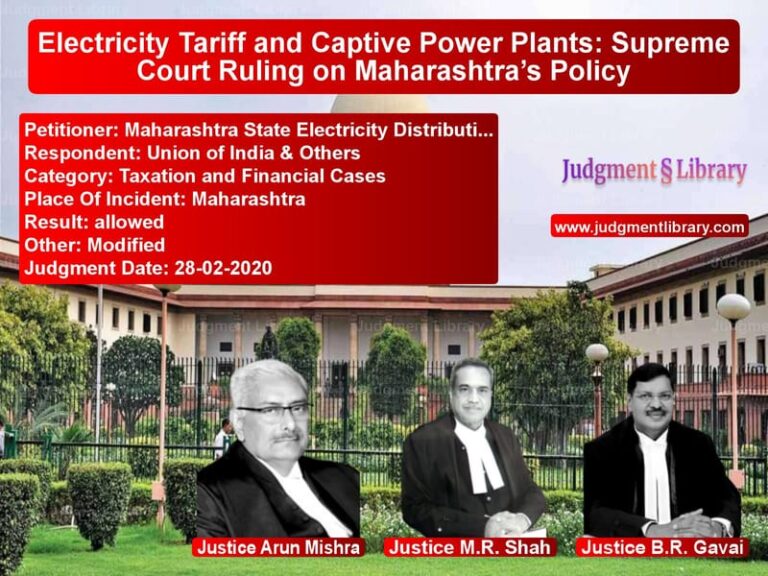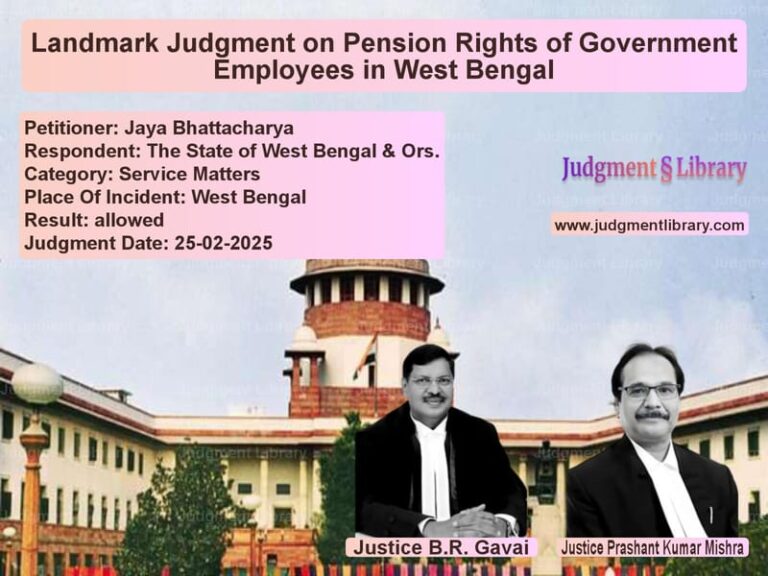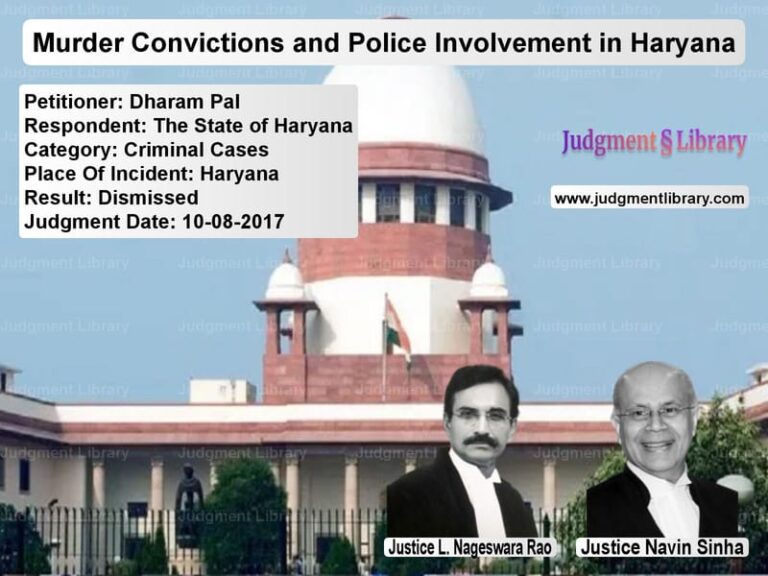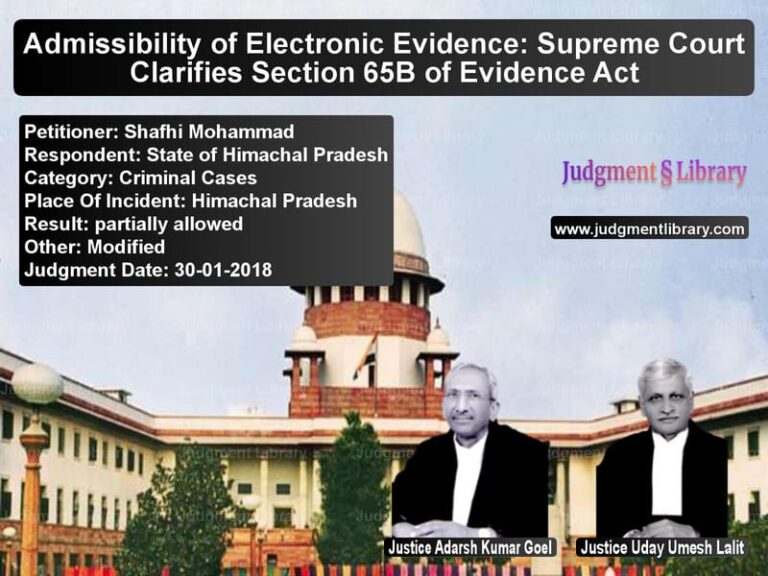Forfeiture of Earnest Money Deposit Under SARFAESI Act: Supreme Court Verdict Explained
The Supreme Court recently adjudicated upon an important case concerning the forfeiture of earnest money deposit in auctions conducted under the Securitization and Reconstruction of Financial Assets and Enforcement of Security Interest Act, 2002 (SARFAESI Act). The case, which involved a dispute between the Central Bank of India and Shanmugavelu, revolved around whether the bank had the right to forfeit the earnest money deposit when the auction purchaser failed to pay the balance amount within the stipulated period.
The Court examined various legal provisions, including Sections 73 and 74 of the Indian Contract Act, 1872, and Rule 9(5) of the SARFAESI Rules, to determine whether forfeiture of the entire deposit amounted to unjust enrichment. The ruling clarified the applicability of these provisions and set a precedent for future cases involving forfeiture under SARFAESI auctions.
Background of the Case
The dispute arose when the Central Bank of India initiated the auction of a secured asset due to the default of a borrower. The bank had sanctioned credit facilities to ‘Best and Crompton Engineering Projects’ against a property in Chennai. Due to default in repayment, the bank classified the loan as a Non-Performing Asset (NPA) and initiated proceedings under the SARFAESI Act.
The auction was held on December 7, 2016, with Shanmugavelu emerging as the highest bidder at Rs. 12.27 crore. As per the auction terms, he deposited 25% of the bid amount (Rs. 3.06 crore) as earnest money. However, he failed to pay the balance amount within the prescribed 15-day period, despite being granted an extension by the bank. Eventually, the bank canceled the sale and forfeited the earnest money deposit.
Arguments by the Appellant (Central Bank of India)
- The bank argued that Rule 9(5) of the SARFAESI Rules explicitly provides for the forfeiture of the earnest money deposit in case of default by the auction purchaser.
- It contended that the auction was a statutory sale under SARFAESI Act, and therefore, general principles of contract law, including Sections 73 and 74 of the Indian Contract Act, did not apply.
- The bank cited previous Supreme Court judgments, particularly Authorized Officer, State Bank of India v. C. Natarajan, which held that forfeiture under Rule 9(5) is a statutory penalty and not subject to contract law principles.
Arguments by the Respondent (Shanmugavelu)
- The respondent argued that forfeiture of the entire earnest money deposit was excessive and amounted to unjust enrichment.
- He contended that the bank did not suffer any financial loss, as the property was later sold in a fresh auction at a higher price.
- The respondent claimed that Section 73 of the Contract Act, which allows compensation only to the extent of actual loss suffered, should apply.
Supreme Court’s Analysis and Judgment
The Court divided its analysis into key legal questions:
1. Does Section 73 of the Contract Act Apply to Forfeiture Under Rule 9(5) of SARFAESI Rules?
The Court categorically ruled that Section 73 of the Contract Act does not apply. It reasoned that the SARFAESI Act is a special law with overriding provisions, and Rule 9(5) explicitly provides for forfeiture.
2. Does Forfeiture Amount to Unjust Enrichment?
The Court rejected the argument of unjust enrichment, stating that forfeiture under SARFAESI is a statutory consequence and not subject to equitable considerations. It held that whether or not a subsequent auction fetched a higher price was immaterial.
3. Are There Exceptional Circumstances to Set Aside Forfeiture?
The Court clarified that forfeiture can be reversed only in extraordinary cases, such as force majeure (e.g., COVID-19 disruptions, as seen in Alisha Khan v. Indian Bank). In this case, no exceptional circumstances existed, as the respondent was aware of the risks while bidding.
Conclusion
The Supreme Court ruled in favor of the Central Bank of India, affirming the forfeiture of the earnest money deposit. The decision reinforces that auction purchasers must strictly adhere to payment timelines, as statutory auctions under SARFAESI have clear forfeiture provisions.
Petitioner Name: The Authorised Officer, Central Bank of India.Respondent Name: Shanmugavelu.Judgment By: Justice Dhananjaya Y. Chandrachud, Justice J.B. Pardiwala, Justice Manoj Misra.Place Of Incident: Chennai, Tamil Nadu.Judgment Date: 02-02-2024.
Don’t miss out on the full details! Download the complete judgment in PDF format below and gain valuable insights instantly!
Download Judgment: the-authorised-offic-vs-shanmugavelu-supreme-court-of-india-judgment-dated-02-02-2024.pdf
Directly Download Judgment: Directly download this Judgment
See all petitions in Arbitration Awards
See all petitions in Enforcement of Awards
See all petitions in Dispute Resolution Mechanisms
See all petitions in Settlement Agreements
See all petitions in Arbitration Act
See all petitions in Judgment by Dhananjaya Y Chandrachud
See all petitions in Judgment by J.B. Pardiwala
See all petitions in Judgment by Manoj Misra
See all petitions in allowed
See all petitions in supreme court of India judgments February 2024
See all petitions in 2024 judgments
See all posts in Arbitration and Alternate Dispute Resolution Category
See all allowed petitions in Arbitration and Alternate Dispute Resolution Category
See all Dismissed petitions in Arbitration and Alternate Dispute Resolution Category
See all partially allowed petitions in Arbitration and Alternate Dispute Resolution Category







